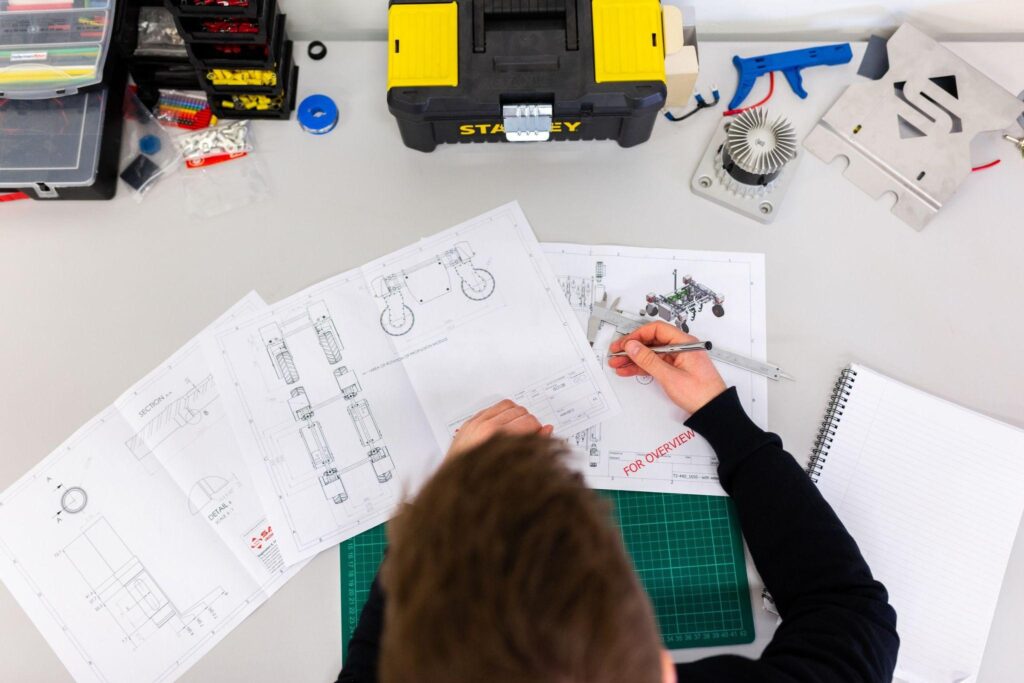
Engineers are key professionals responsible for the invention and development of new products, processes, technologies, and services. They can work in virtually any industry, making this a promising career for many types of people.
Understanding what engineers do and what types of roles they play can help you decide if this career choice is right for you. Let’s take a look at some of the industries in which engineers can work.
1. Biomedical Engineer
Biomedical engineers combine medicine, biology, and engineering into their roles. They analyze data and design solutions to improve patient care. They may work closely with medical equipment suppliers to create sophisticated equipment like MRIs and they are the brains behind the research and development of medical marvels like artificial limbs and organs.
2. Automotive Engineer
It takes the knowledge and skills of many engineers to develop a vehicle, but it’s the automotive engineer who has the most exciting job. The automotive engineer is responsible for researching and designing cars and their subsystems. They use advanced technology to create astonishing products that make mobility possible all over the world.
If it has an engine and runs on wheels, you can be sure an automotive engineer is the brains behind the machine. These professionals design new products and modify old ones, troubleshoot and solve automotive problems, and develop processes to keep the automotive industry and its technology moving forward.
3. Civil Engineer
Where would our cities be without the specialized work of a civil engineer? These engineers serve an important role as they are the ones responsible for the development and construction of roads, bridges, buildings, water supply systems, and other forms of infrastructure.
These professionals supervise and direct construction teams and work with other engineers to ensure every structure is environmentally sound and compliant and can withstand mother nature’s fury. The civil engineer’s job is especially important in areas where hurricanes and other natural disasters occur often.
4. Electrical Engineer
The training of an electrical engineer is so extensive that anyone who completes it has the option of working in many different fields. Electrical engineers are specialized in power generation and supply. They are responsible for the design, development, testing, and supervising of electrical equipment manufacturing, and they can also install wiring and lighting in buildings, cars, and planes. As a trained electrical engineer, you would be able to easily qualify for a job in construction, manufacturing, design, and many other industries.
5. Geological Engineer
Geological engineers combine the knowledge and skills of civil engineering, geology, mining, forestry, and geography. They use Earth sciences to find solutions to human problems. Geological engineers may specialize in geotechnical site studies on rocks or soil for specific projects, environmental studies and planning for construction, groundwater studies, hazard investigations, and finding mineral deposits and fossil fuels.
Geological engineers regularly investigate things that are part of or have to do with the Earth. This might include mines, roads, quarries, dams, railways, petroleum production, pipelines, building construction, and forestry operations.
6. Software Engineer
Software engineers are the people responsible for the design, development, testing, and maintenance of computer software for both home and business. They use math, engineering, and computer science to create software and to program computers to operate as they are meant to. Given the direction the world is taking, the need for software engineers is growing by the day.
Engineering is a multi-faceted field that has a home in many different industries. Engineers are responsible for the design, development, testing, and maintenance of new products, processes, services, and technologies. The list above is just a small sample of the industries in which an engineer can work.